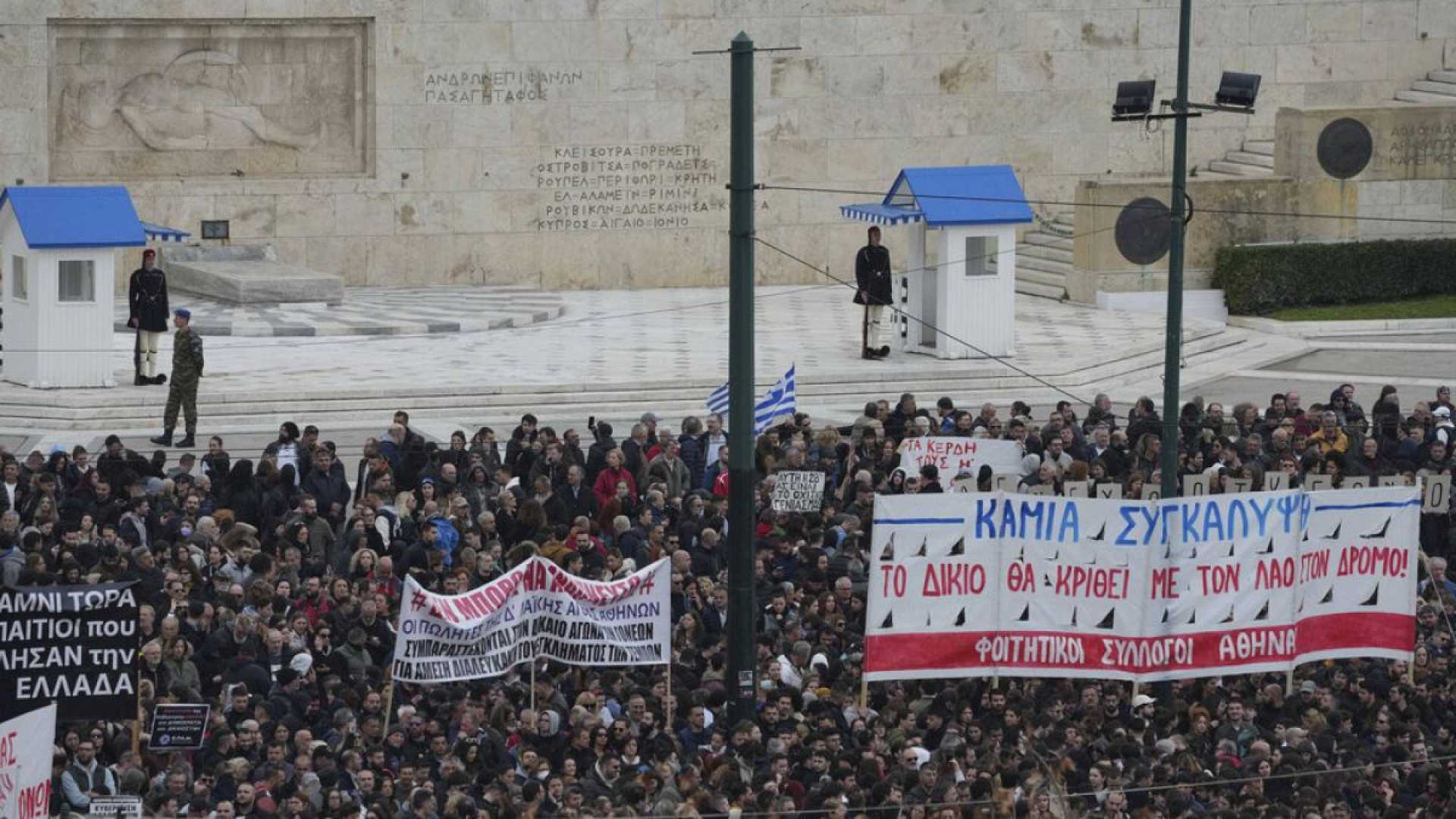News
Clashes Erupt in Athens as Greece Marks Train Crash Anniversary

ATHENS, Greece (AP) — Clashes broke out in the heart of Athens on Friday as hundreds of thousands rallied across Greece to demand accountability on the second anniversary of the nation’s deadliest train disaster. The tragedy occurred on February 28, 2023, when a passenger train carrying students collided with a freight train near the Tempi gorge, killing 57 people.
Despite the passage of two years, safety measures that could prevent such a disaster remain inadequate. On Thursday, a preliminary inquiry indicated that gaps in safety protocols had not been addressed, and no one has been convicted in the aftermath of the incident, igniting public outrage.
Mass demonstrations took place in cities and towns nationwide, including one of the largest protests seen in years. In Syntagma Square, situated in front of the Greek Parliament, chants of “murderers” echoed from the crowd, directed at the state officials they hold responsible for the disaster.
The protests turned violent as a group of hooded youths clashed with riot police, throwing petrol bombs and attempting to breach barricades protecting the parliament. Police responded with tear gas and stun grenades in an effort to disperse the crowd.
Prime Minister Kyriakos Mitsotakis‘ center-right government has faced severe criticism from victims’ families and opposition parties for its failure to conduct a parliamentary investigation into political accountability since the crash. The government maintains that it is a judicial matter and denies any wrongdoing.
Christos Main, a 57-year-old musician who participated in the Athens demonstration, expressed frustration, saying, “The government hasn’t done anything to get justice. This wasn’t an accident; it was murder.”
Another protester, who identified herself as Evi, attended to mourn the victims and protest the government’s perceived attempts to cover up the truth about the incident. Many students and families showed their solidarity by wearing black, symbolizing mourning for the lives lost.
In reaction to the devastating events, workers across many sectors, including air traffic controllers and train drivers, participated in a nationwide strike. Flights were canceled, ferries remained docked, and businesses closed as citizens unified to honor the victims.
Mitsotakis, addressing the nation in a social media post, said his government remains committed to modernizing the railway system to enhance safety. “That night, we saw the ugliest face of the country in the national mirror,” he wrote, acknowledging the human errors and systemic failures that contributed to the disaster.
Next week, the Greek Parliament is expected to discuss whether to form a committee aimed at investigating possible political responsibility tied to the disaster. According to a recent Pulse poll, 82% of Greeks believe the train crash is one of the most significant issues facing the country today, with 66% expressing dissatisfaction with the ongoing investigations.
Maria Karystianou, whose daughter was a victim, used her platform to advocate for justice, stating, “Every day, the monster of corrupt power appears before us.”
As the protests continued, profound sentiments filled the atmosphere. Many chanted, “Text me when you get there,” a haunting reminder of the last messages some victims received. Holding a sign that read, “Greece kills its children,” Litsa, a nurse and mother, shared her fears about the safety of future generations. “We’re here because we’re parents… tomorrow it might be our children,” she lamented.












